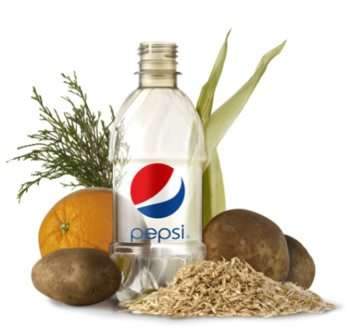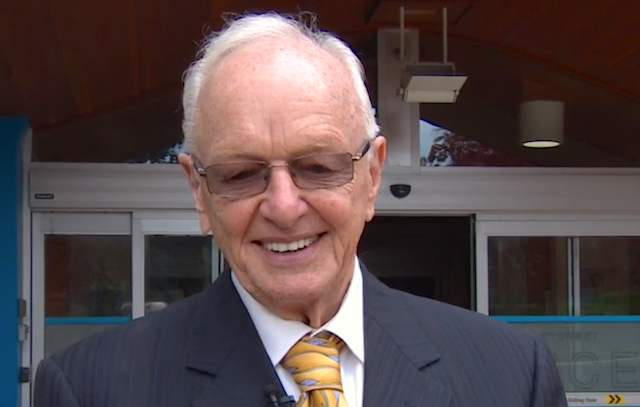PepsiCo this week unveiled the world's first PET plastic bottle made entirely from plant-based, fully renewable resources, enabling the company to manufacture a beverage container with a significantly reduced carbon footprint.
PepsiCo's "green" bottle is 100 percent recyclable, made from bio-based raw materials, including switch grass, pine bark and corn husks. In the future, the company expects to broaden the renewable sources used to create the "green" bottle to include orange peels, potato peels, oat hulls and other agricultural byproducts from its foods business.
"PepsiCo is in a unique position, as one of the world's largest food and beverage businesses, to ultimately source agricultural byproducts from our foods business to manufacture a more environmentally-preferable bottle for our beverages business," said PepsiCo Chairman and CEO, Indra Nooyi.
PepsiCo will pilot production of the new bottle in 2012. Upon successful completion of the pilot, the company intends to move directly to full-scale commercialization.
"By reducing reliance on petroleum-based materials and using its own agricultural scraps as feedstock for new bottles, this advancement should deliver a double win for the environment and PepsiCo," said Conrad Mackerron, Senior Program Director of As You Sow, a San Francisco-based foundation, which promotes corporate social responsibility
Another example of PepsiCo's commitment to environmental progress includes its innovation of the first fully compostable snack bag for its SunChips brand.
Pepsi also achieved "positive water balance" in India in 2009 by replenishing nearly six billion liters of water across India, exceeding the total intake of approximately five billion liters of water by its manufacturing facilities. The company also launched a groundbreaking program to use low-carbon fertilizers for its Tropicana orange juice line.
PepsiCo's "green" bottle is 100 percent recyclable, made from bio-based raw materials, including switch grass, pine bark and corn husks. In the future, the company expects to broaden the renewable sources used to create the "green" bottle to include orange peels, potato peels, oat hulls and other agricultural byproducts from its foods business.
"PepsiCo is in a unique position, as one of the world's largest food and beverage businesses, to ultimately source agricultural byproducts from our foods business to manufacture a more environmentally-preferable bottle for our beverages business," said PepsiCo Chairman and CEO, Indra Nooyi.
PepsiCo will pilot production of the new bottle in 2012. Upon successful completion of the pilot, the company intends to move directly to full-scale commercialization.
"By reducing reliance on petroleum-based materials and using its own agricultural scraps as feedstock for new bottles, this advancement should deliver a double win for the environment and PepsiCo," said Conrad Mackerron, Senior Program Director of As You Sow, a San Francisco-based foundation, which promotes corporate social responsibility
Another example of PepsiCo's commitment to environmental progress includes its innovation of the first fully compostable snack bag for its SunChips brand.
Pepsi also achieved "positive water balance" in India in 2009 by replenishing nearly six billion liters of water across India, exceeding the total intake of approximately five billion liters of water by its manufacturing facilities. The company also launched a groundbreaking program to use low-carbon fertilizers for its Tropicana orange juice line.










Be the first to comment